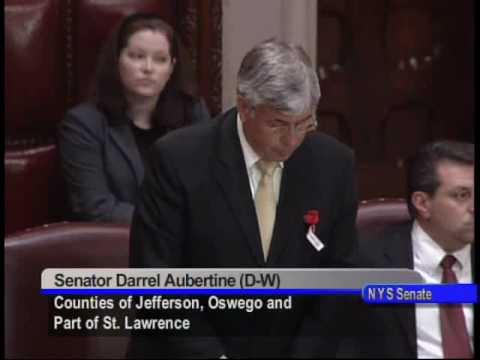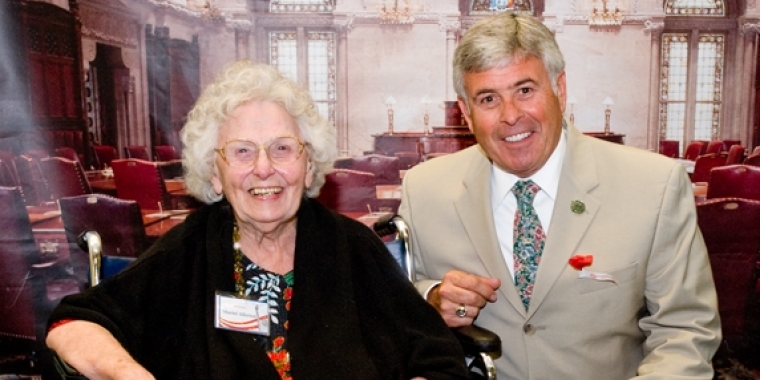Dedicated staff a necessity at local orchard
http://www.saratogian.com/articles/2009/09/27/news/doc4abed90daf97d338235102.txt
SCHUYLERVILLE — The who, when and how of apple picking can be as important as the growing season itself, making the difference between prosperity and ordinary profits.
Saratoga Apple on Route 29 hires local and migrant workers, who harvest about half of the farm’s crop. The rest is brought in by thousands of visitors who enjoy picking apples themselves through the end of October.
Owner Nate Darrow constantly struggles to find the right balance. Hired help costs more, but works faster and more efficiently — especially Jamaicans, with whom he has a longstanding relationship. The public pays for the “you-pick” experience, but for every apple taken people tend to knock one or two off the tree, which costs orchards money.
“Apple picking is not unskilled work,” Darrow said. “There used to be a migrant trail — peaches in Georgia, cherries in Pennsylvania. Migrants would work their way north to New York for apples.”
As Florida’s economy boomed, however, with the growth of tourist destinations such as Disney World, more and more people from the Caribbean took construction jobs, putting a serious dent in the migrant work force.
In addition, the Obama Administration has made it tougher for orchards to hire migrant help, Darrow said. As a rule, he’s always hired five seasonal Jamaican pickers, who arrive in September. This year, he was only allowed three Jamaicans and told he had to advertise for American labor, giving work to U.S. residents hurt by the recession.
“Because I requested five workers I was required to hire five Americans, which I’ve done,” he said. “But they’re not as good workers. They don’t pick apples as fast. We’re running a high payroll. It’s costing me money.”
One young man, planning to join the Army later this year, wanted a temporary job.
“He could only stand apple picking for three hours,” Darrow said. “He couldn’t handle it. I think I had another one who worked three days. It’s not for everybody.”
DeVoe’s Rainbow Orchard in Halfmoon relies strictly on local help to harvest its 40-acre crop. “We used to do pick-your-own, but it got to be too aggravating,” owner Lawrence DeVoe said. “People don’t care. They shake trees, throw apples, let kids climb trees and break limbs. I can’t afford to take care of apples all year and have them end up on the ground.”
Saratoga Apple’s workers are in the orchard from 8 a.m. to
6 p.m., earning $9.70 per hour. Darrow also pays the Jamaicans’ travel expenses and provides housing at a labor camp, with state Health Department certification.
With buckets capable of holding 40 pounds slung over their shoulders, migrants pick like well-tuned machines. During one five-to-six-hour stretch, they filled eight large wooden bins holding 20 bushels each.
“It’s a skill,” said Joseph Garricks, the farm’s 54-year-old Jamaican foreman. “Every apple is worth something. You can’t forget that.”
At large farms, workers go through and clean trees off in a hurry. Darrow is more exacting in the way apples are picked. Workers are directed to only take nice, red fruit, because that’s what a demanding public looks for at the retail stand.
“It’s slower, but I really get apples picked the way I want them, fully ripe,” he said. “We’ll go back through and make a second picking later on.”
In addition to migrant pickers, here just for the harvest, Darrow hires three other Jamaicans who arrive in March when orchards have to be pruned. They work all summer and stay through October, helping bring in the crop, too. Migrants work as a close-knit team, because Garricks recruits them all. The group includes his son, Damian, a half-brother, Clive Palmer, and his cousin, Junior Palmer.
After apple season, Garricks goes home to Jamaica where he has a five-acre banana farm and also grows dasheen, a root crop.
“I started very young,” he said. “After my father died he left six of us. He was the main bread winner. My mother made us take a machete and clear the land so we could grow sweet potatoes.”
About 20 years ago, he decided to “go foreign” just to see what life in America was like.
“Everyone thinks the grass is greener on the other side,” Garricks said. “It’s worth it. Our dollar is very small compared to the U.S. dollar.”
Stan Williamson, originally from Trinidad, is a resident alien who lives in Schuylerville year round. This is his third year working at Saratoga Apple. “I used to live in Woodstock and do construction work,” he said. “I moved up here and just fell in love with the farmland. It reminds me of home. I’m used to country life. My grandmother was from Grenada and did a lot of farming.”
“If I stayed in Trinidad I would have probably ended up in some kind of government job. I like being outside rather than an office. Plus, it’s hurricane season there now,” he said, smiling.
There are plenty of long, hard hours, but workers know how to have fun, too. Each Sunday afternoon, the farm has live Reggae music by the band Robonic, of Saratoga Springs. Some migrants, including Clive Palmer, an accomplished musician, join the group, too.
“The whole thing kicks up a notch,” Darrow said. “He’s better than the band.”
Like any farm operation, diversity of products is often key to survival. The farm makes its own cider and supplies eight to 10 local restaurant chefs with peeled, cored and sliced apple sections. Several years ago, because of new Health Department regulations, Darrow had to purchase an ultraviolet light machine to purify cider.
“It cost $15,000,” he said. “We only sell $30,000 worth of cider a year, but I figure it’s part of the apple program. That’s something people look for.”
Darrow also raises 100 percent apple-fed pork. In summer, he’s part of nine farmers’ markets selling everything from tomatoes and asparagus to plums, cherries, raspberries and pears. There are four winter markets as well that provide year-round income.
Thanks to extraordinarily heavy summer rains, this year’s apples are much bigger than average. More recently, bright sunshine and warm temperatures have brought out color and boosted sugar content, too.
“We’ve had two busy weekends and expect to have five more,” Darrow said.


